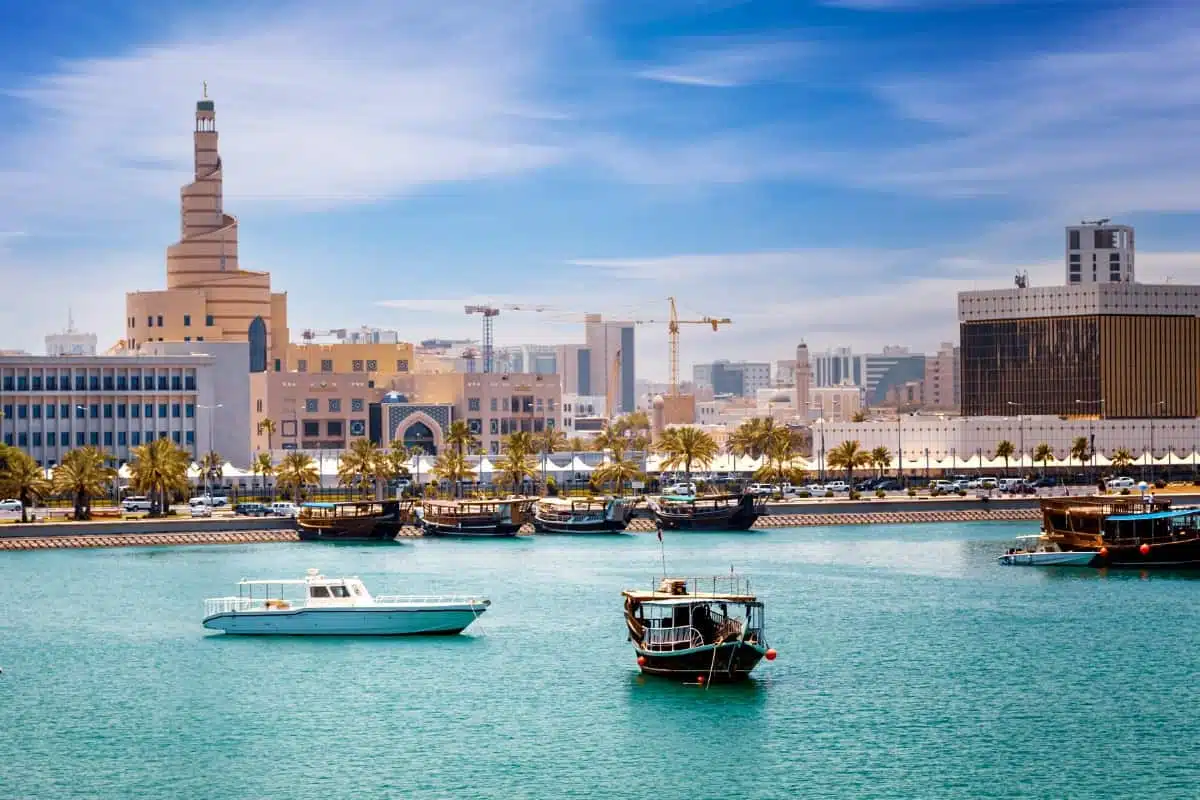Tomorrow, Canada will be making its second-ever FIFA World Cup appearance, the country’s first in 36 years.
After flaming out of the tournament in the group stage of the 1986 World Cup, losing all three matches and scoring a grand total of 0 goals, Canada looks to have a much better showing in Qatar this year.
Yearning for an opportunity to support their home country, Canadians all the way from British Columbia to Newfoundland are excited to support national soccer on the world’s grandest stage beginning on November 20th.
As Gareth Wheeler of TSN told about the Canadian men’s World Cup team, “this group has captured the imagination of the country like few Canadian athletes and teams have before.”
Team Canada’s journey to Qatar 2022
After defying the odds to make it to this year’s World Cup, qualifying in their second-to-last opportunity with a dominant 4-0 win over Jamaica at BMO Field in Toronto, Canada is positioned to have its best-ever shot at international soccer’s biggest prize. This year, Canada also rosters some of the world’s highest-profile players, including Bayern Munich winger Alphonso Davies and Lille forward Jonathan David.
Canada begins its World Cup run against Belgium — led by Kevin De Bruyne of the English Premier League’s (EPL) Manchester City — on Wednesday, November 23rd.
Immigration key to Canada’s World Cup roster
From the moment they kick off their first game of the tournament, this team will have Canadians of all backgrounds, nationalities, and ethnicities cheering them on with great pride, largely because this year’s team is a profound representation of the international mosaic that is this country’s foundation.
Canada’s players, especially those who are immigrants themselves, also feel a strong sense of national pride toward Canada, including Yugoslavian-born Milan Borjan who “[I’m] happy to give back something to Canada that Canada [gave to me]. New life, new everything.”
In total, Canada’s 2022 FIFA World Cup team rosters 26 players, 7 of whom are first-generation immigrants to Canada. This represents 26.9% of the team’s players, a number that is close to the 23% of Canada’s population that is made up of immigrants. The head coach of Canada’s World Cup team, John Herdman, is also not Canadian-born.
Now, let’s break down the international and immigrant makeup of Canada’s World Cup team, sorted by the number of players hailing from each country/region.
3 players on Canada’s team were born in the United Kingdom
Three players on Canada’s 2022 World Cup roster are originally from different parts of the United Kingdom. This includes forward Ike Ugbo (Lewisham, England), midfielder David Wotherspoon (Perth, Scotland) and defender Samuel Adekugbe (London, England).
Note: Head Coach John Herdman is a native of Consett, England
4 different countries also represented by 1 Canadian national team player
The Canadian team currently preparing for the World Cup to begin in a matter of days also rosters one immigrant from each of the following four countries.
United States of America: Forward Jonathan David (Brooklyn, New York)
Ghana: Forward Alphonso Davies (Buduburam)
Ivory Coast: Midfielder Ismael Kone (Abidjan)
Yugoslavia: Goalkeeper Milan Borjan (Knin, SR Croatia)
Another 12 players on Canada’s World Cup team are second-generation immigrants
Beyond the seven players listed above, 12 Canadian national team players are second-generation immigrants born in different places across the country.
Ontario’s Junior Hoilett (Forward, Brampton) was born to parents that immigrated from Jamaica to Canada. Another Brampton native is midfielder and team captain Atiba Hutchinson, the oldest player on the team and a second-generation immigrant born to Trinidadian parents.
Another midfielder for Canada, Stephen Eustaquio of Leamington, Ontario, was born to Portuguese immigrants. Eustaquio’s fellow midfielders Mark-Anthony Kaye (Toronto, Ontario) and Jonathan Osorio (Toronto) were born to immigrants from Jamaica and Colombia, respectively.
On defence, another five members of this team have at least one parent who is a Canadian immigrant.
- Derek Cornelius, hailing from Ajax, Ontario, is the child of Canadian immigrants from Barbados (father) and Jamaica (mother)
- The parents of Steven Vitoria (Toronto) are both Portuguese immigrants from the Azores
- British Columbia’s Alistair Johnston (Vancouver) was born to a mother from Northern Ireland (Johnston’s father is Canadian)
- Kamal Miller (Scarborough, Ontario) was born to a Canadian mother and a Jamaican fatherRounding out Team Canada’s second-generation immigrants is defender Richie Laryea (Toronto), who was born to Canadian immigrants from Ghana.
Finally, two of Canada’s forwards — Lucas Cavallini (Toronto) and Cyle Larin (Brampton) — are also second-generation immigrants, as Cavallini’s father is a native of Argentina and Larin’s father is Jamaican.
Fans excited for the 2022 World Cup
Alphonso Davies, Jonathan David, and Canada’s other national team members have generated a great deal of buzz for Canada’s first trip to the World Cup in nearly 40 years. Ultimately, however, no matter how this team performs, one thing is true… Canadian soccer fans and Canadians generally are eager to see their country represented in Qatar.
Although the enthusiasm for Canada’s long-awaited second World Cup appearance has been palpable since the team qualified last March, Canadian excitement around this global sporting event could be most recently seen when the FIFA World Cup trophy made a visit to Toronto on November 9th.
waited in line at BMO Field for an opportunity to simply have their photo taken with the famous prize, a testament to the fanfare surrounding Canada and their trip to Qatar in search of international soccer glory.
With this kind of passion and excitement setting in for a World Cup taking place in the Middle East, just imagine what it will be like when Canada co-hosts the 2026 FIFA World Cup with Mexico and the U.S. in just four years’ time.

